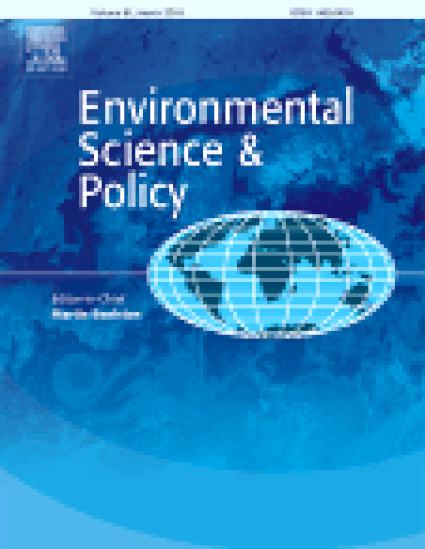
Article
Environmental implications of increased US–Mexico electricity trade
Environmental Science & Policy
(1998)
Abstract
Electric restructuring is intended to reduce the cost of service to end users and rate payers. In North America, deregulation has taken hold at various levels. In the US, wholesale markets are developing rapidly and utilities are competing increasingly among themselves as well as with power brokers to capture and retain market share. Retail competition is forthcoming, with California instituting retail choice in 1998 and pilot programs underway in several other states. In Mexico, electric deregulation is also taking place, with the advent of private power development and a potential reorganization of the federal electric utility. In this context, environmental policy must address the issues germane to increasing competition, new electricity market outlets, and their attendant influences on demand. This paper addresses two important areas related to the environmental implications of greater cross-border electric trade. First, we provide background information on the regulatory concerns and market trends associated with trade in electricity between the United States and Mexico. Second, we provide a preliminary assessment of the potential incremental environmental impacts of increased trade in electricity between the United States and Mexico. Third, we speculate on possibilities for mitigating trade-induced environmental impacts. Although the conventional view has generally been that increased electricity trade could have negative environmental consequences, we find that the environmental implications of Mexico–US trade could be positive in the medium term (1998–2005) and that negative short-term impacts are likely to be small. Options exist for enhancing environmental protection using market mechanisms in the context of both domestic and cross-border transactions. For example, considering emissions on both sides of the US–Mexico border as loading a single airshed would permit the integration of environmental and energy trade issues and would likely further promote cross-border trade in electricity.
Keywords
- Electricity trade,
- Mexico,
- Electric power,
- Deregulation,
- Environmental impacts,
- Generation,
- Emmissions,
- Sulfur oxides,
- Nitrogen oxides,
- Carbon Dioxide
Disciplines
Publication Date
May, 1998
DOI
10.1016/S1462-9011(98)00010-0
Citation Information
Edward A Hoyt, John Paul Moscarella and Joel N Swisher. "Environmental implications of increased US–Mexico electricity trade" Environmental Science & Policy Vol. 1 Iss. 2 (1998) p. 99 - 113 Available at: http://works.bepress.com/joel-swisher/41/
